RenoZEB General Assembly in Bilbao
29 November 2018Partners of the RenoZEB project recently met in Bilbao, Spain to attend their second General Assembly. The event, which took place from 23-24 October 2018 was held at partner headquarters, TECNALIA and included 29 delegates from 19 European partners.
Prof Terrence Fernando and Dr Zafer Ozturk attended the two-day event and presented research findings and key achievements within their work packages. They highlighted how the RenoZEB lifecycle can be implemented throughout wider renovation processes, before confirming the next stages to be developed by THINKlab.
The team presented a holistic approach which explained the workflow of activities within each one of the project’s life cycle, and covered the plan, design, construction and management including a selection of environmental and social KPI’s with the financial and energy aspects. The approach defined the actors and stakeholders involved in performing these activities, the input/output and the visualisation output.
The Information Delivery Manual (IDM) was used to specify the process and workflow activities, actor/stakeholder involvement, the application of tools, and the information created, consumed and exchanged. It considered each phase of the Deep Renovation (DR) life cycle (plan, design, construction and management) and the value chain through its stakeholders for each phase to reach an optimum cost/benefit ratio. The approach is oriented to individual buildings with some consideration to create Active Energy Nodes for future district action.
The key phases in a sustainable retrofit programme consist of:
- Phase I: Project set up and per-retrofit survey
- Phase II: Energy auditing and performance assessment
- Phase III: Identification of retrofit options
- Phase IV: Site implementation and commissioning
- Phase V: Validation and verification
The RenoZEB project uses these five phases to map and determine its life cycle:
- Plan phase: this will focus on preparing the general strategy of intervention such the project set up, per-retrofit survey and define the required data to carry out energy audit and performance assessment.
- Design phase: this will consist of the activities relate to define various solutions on a building and neighbourhood levels including cost and benefit analysis.
- Construction phase: this will focus on defining the optimal construction procedures.
- Management phase: this will focus on defining the procedures for an optimal management including operation and maintenance.
* Mapping the key phases in a sustainable building program into the RenoZEB DR life cycle
The event gave partners the opportunity to visit two case study sites, Durango and KUBIK, where they looked at ways to better understand requirements and fine-tune their approaches to renovation.
The RenoZEB project targets the nearly Zero Energy Building (nZEB) renovation market by increasing property value through a new systemic approach to retrofitting and includes innovative components, processes and decision-making methodologies.
RenoZEB General Assembly in Bilbao


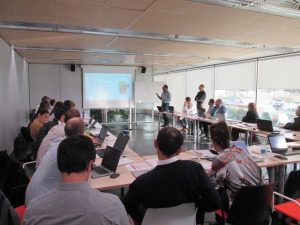
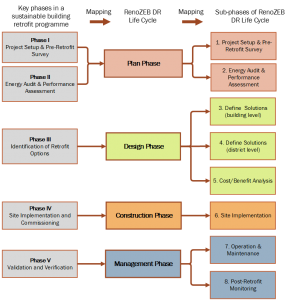
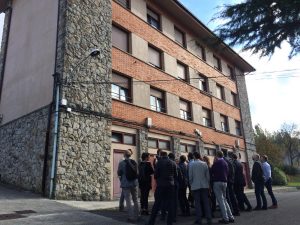

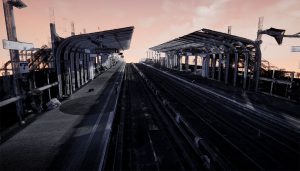
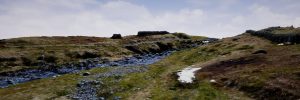
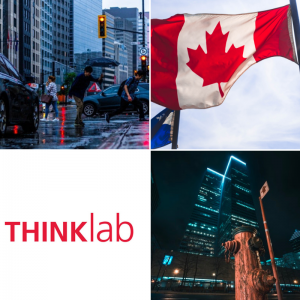
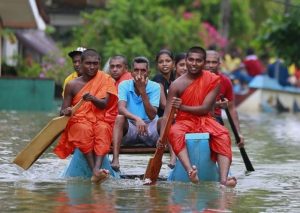

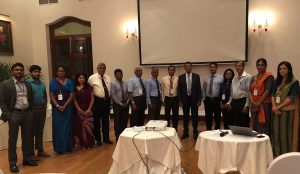
Recent Comments